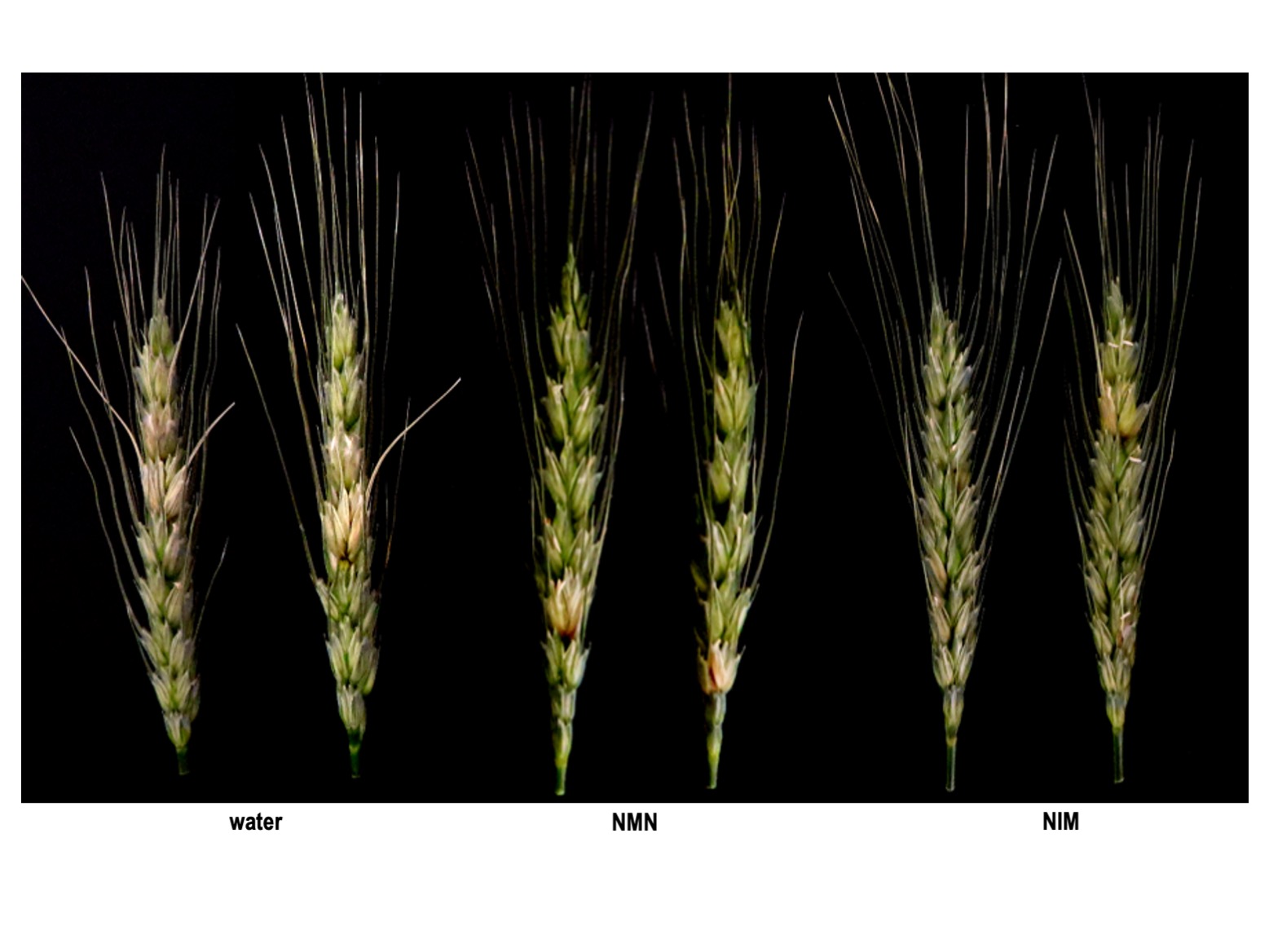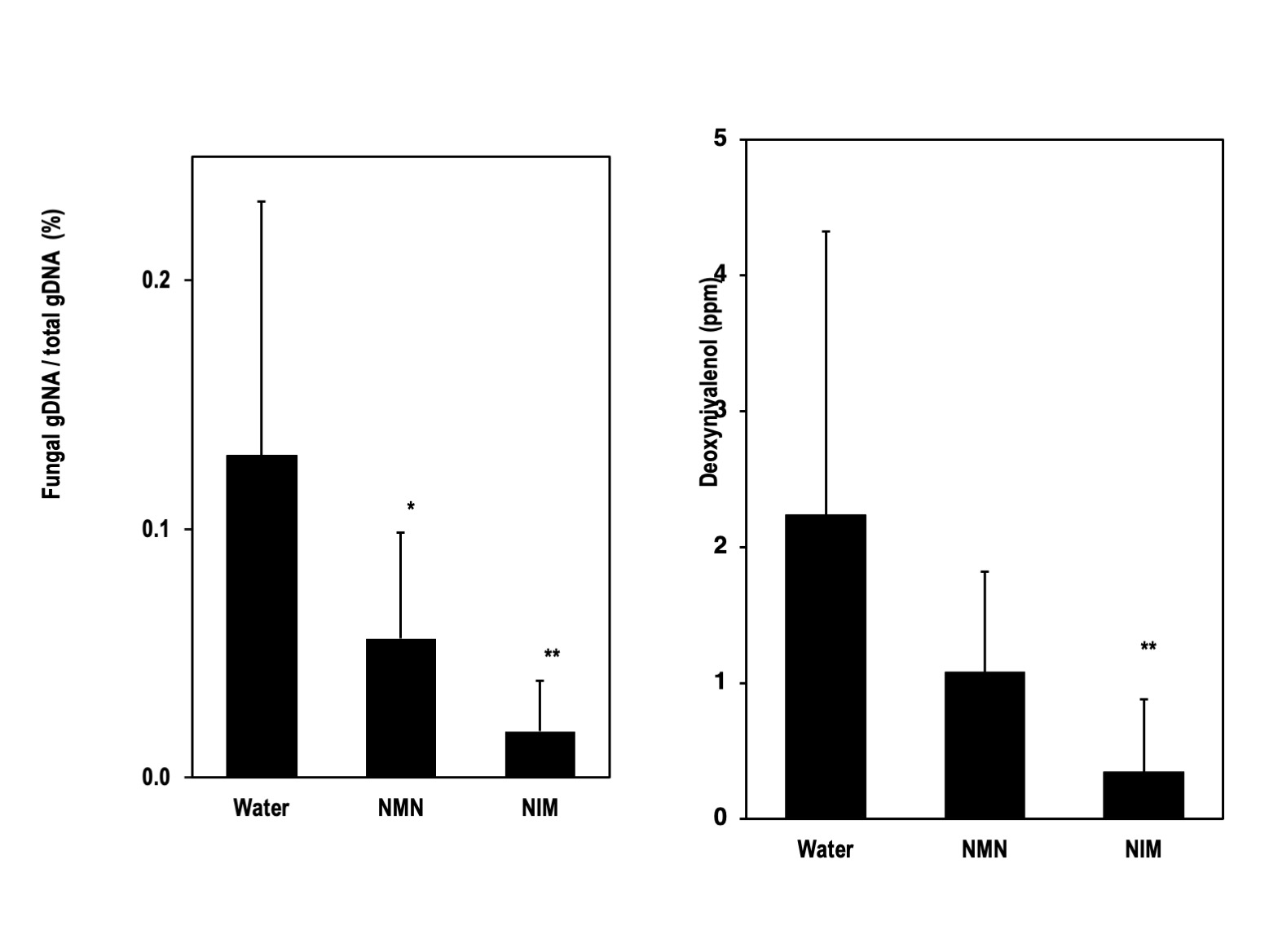Abstract:Research led by Kanazawa University shows that application of the nicotinamide to wheat spike activated plant immunity and then effectively suppressed the disease symptoms and mycotoxin accumulation of Fusarium head blight.
Kanazawa, Japan – Fungal diseases in cereal crops cause major economic losses and also threaten human and livestock health, because some fungi produce powerful toxins that might enter the food chain. Farmers use fungicides to control crop diseases, such as wheat head blight. Although agrochemicals are rigorously tested for safety, there can be concerns over chemical residues in food.
Now, researchers at Kanazawa University, in collaboration with colleagues at Ehime University and Nagoya University, have shown that the natural substance nicotinamide (NIM – a vitamin found in food and used as a dietary supplement) can help stimulate plant immune systems. Pre-treatment with NIM can prevent or reduce development of fungal disease in wheat plants. This knowledge could lead to new approaches to tackle crop diseases. The team recently published their work in the International Journal of Molecular Sciences.
When the team pre-treated with NIM the spikes of wheat plants (carrying the young grains that are later harvested to make flour) and then inoculated the plants with conidia of Fusarium graminearum (which causes head blight), the NIM pre-treatment strongly suppressed the disease. Pre-treated plants contain much less fungal biomass, and less of a mycotoxin it produces, compared with water-treated plants.
The team also performed metabolomics to analyze the contents of hundreds of compounds in the plants and found that NIM pre-treatment increased the amounts of 375 substances. Among those markedly increased were several antimicrobial and antioxidant compounds.
“We found that pre-treating wheat plants with NIM led to the activation of plant immune response and much higher content of the plant’s own defense-related compounds, including antimicrobial substances”, says lead author Yasir Sidiq. “This work builds on previous research using other natural chemicals related to NIM and has the added advantages of being relatively cheap, readily available, and stable at room temperature.”
This work represents a significant step forward in developing environmentally friendly ways to tackle important diseases in crops. “We expect our study will lead to novel approaches in agriculture,” corresponding author Takumi Nishiuchi explains, “potentially replacing toxic fungicide sprays with new ways of stimulating the plant innate immune responses – similar to how vaccinating humans or animals primes their immune systems against later infection.”

Figure1
Pretreatment of nicotinamide (NIM) effectively suppressed the development of Fusarium head blight in the wheat spikes compared with nicotinamide mononucleotide (NMN).

Figure2
Fungal biomass and DON mycotoxin accumulation were significantly reduced by pretreatment of nicotinamide (NIM) in the wheat spikes.
[Funder]This research was supported by grants from the Project of the NARO Bio-oriented Technology Research Advancement Institution (Research program on development of innovative technology, no. 28007A and 28007AB). This work was also supported by Research for Promoting Technological Seeds (no. 07-070) and by the Adaptable and Seamless Technology Transfer Program through Target-driven R&D (AS232Z02753E and AS242Z03390N) from the Japan Science and Technology Agency (JST). This research was supported partly by Scientific Research (no. 23580060, 26450053, 15H05780, and 18K05642) from the Ministry of Education, Culture, Sports, Science and Technology of Japan. This research was partially supported by Indonesia Endowment Fund for Education (LPDP) and Ministry of Research, Technology, and Higher Education of Indonesia (BUDI-LN Scholarship, FR2732019174118).
[Article]
Title: Nicotinamide effectively suppresses Fusarium head blight in wheat plants
Journal:the International Journal of Molecular Sciences
Authors: Yasir Sidiq, Masataka Nakano, Yumi Mori, Takashi Yaeno, Makoto Kimura, and Takumi Nishiuchi



 PAGE TOP
PAGE TOP